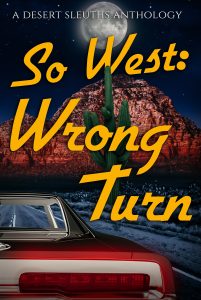This post contains spoilers about State of Wonder. Join the main discussion here.
As part of our challenge to read through the 100 Bestseller List presented in The Bestseller Code, I read Ann Patchett’s State of Wonder (Book #99 on the list). In State of Wonder, Dr. Marina Singh works for a pharmaceutical company in Minnesota. The story begins with her boss/lover, Mr. Fox, reading her a letter stating that her co-worker and friend, Anders Eckmann, has died of a fever at the company’s research site in the remote Amazon jungle. Dr. Eckmann was sent to Brazil to discern the progress of research into a fertility drug, research led by Dr. Annick Swenson. Since Dr. Swenson was an early mentor of Marina’s, Mr. Fox believes that Marina will be able to complete Eckmann’s mission and bring back the information. So, he sends Marina to Brazil.

This book couldn’t have been more different from our previous read, Shutter Island, #100 on the list. Whereas Shutter Island grabbed my attention from the very beginning, I felt quite literally like I was slogging through the Amazon jungle, hacking a pathway through the first third of State of Wonder. Was this the author’s intent, leading the reader to feel they had left the modern world behind for the slower pace of the jungle? If so, it didn’t work for me. Instead, I found myself skimming the story, trying to fast forward in hopes of discovering a reason to keep reading.
Marina eventually makes contact with Dr. Swenson, and from there the pace of the story picks up. And yet, I still didn’t care. I found the main character, Marina, oddly passive throughout most of the story, letting others set the course of her life, as though she had no opinions of her own and didn’t care which way they turned her or where they led her. It was difficult to feel strongly about her in any fashion, other than to maybe want to give her a strong shake and say, “Wake up! It’s your life!”
When I finished reading, I was in a “state of wonder” – wondering what the story was about and why I’d read it. Wondering how the computer algorithm from The Bestseller Code could have chosen this book, which was so different from Shutter Island, as a bestseller. Obviously I missed the point of the story somewhere, possibly taking a wrong turn down a tributary only to be lost in the jungle. So I picked the book back up and starting rereading it at Chapter Five, which is where Dr. Swenson appears. And I’m glad I did that. Several of the story lines became clearer to me on the second read through; I paid closer attention to conversations, and found some answers I had previously missed.
Ann Patchett explores several important topics in State of Wonder – the impact of the modern world upon the Amazon and its inhabitants, the priority pharmaceutical companies place on developing new drugs for profits over the beneficial impact upon humanity, the need humans have to feel that they belong culturally, and more. It’s all there, if you care to cut through the vines and peer through the murky waters.
Will I read another Ann Patchett novel? Normally, I’d say no. But I do wonder if all her books are similar in character development, plot pace, etc. I’m open to suggestions. Post your favorite Anne Patchett novel in the comments, along with why you recommend it. And if State of Wonder is your favorite, kindly tell me what I missed!
You can also join us on social media:
- The Bestseller Code 100 Pinterest Page
- Twitter: #BestsellerCode100
- Facebook: Bestseller Code 100 Reading Group
- The full list is now posted on GoodReads
__________________
What are we reading next?
If you ever have questions about what we are reading next or when we’re starting the next discussion, check the 100 Book List tab in the navigation bar at the top of the blog.
The next book is number 98 on the list, Primary Colors by Anonymous, Joe Klein (1996) – Discussion begins December 5, 2016.









